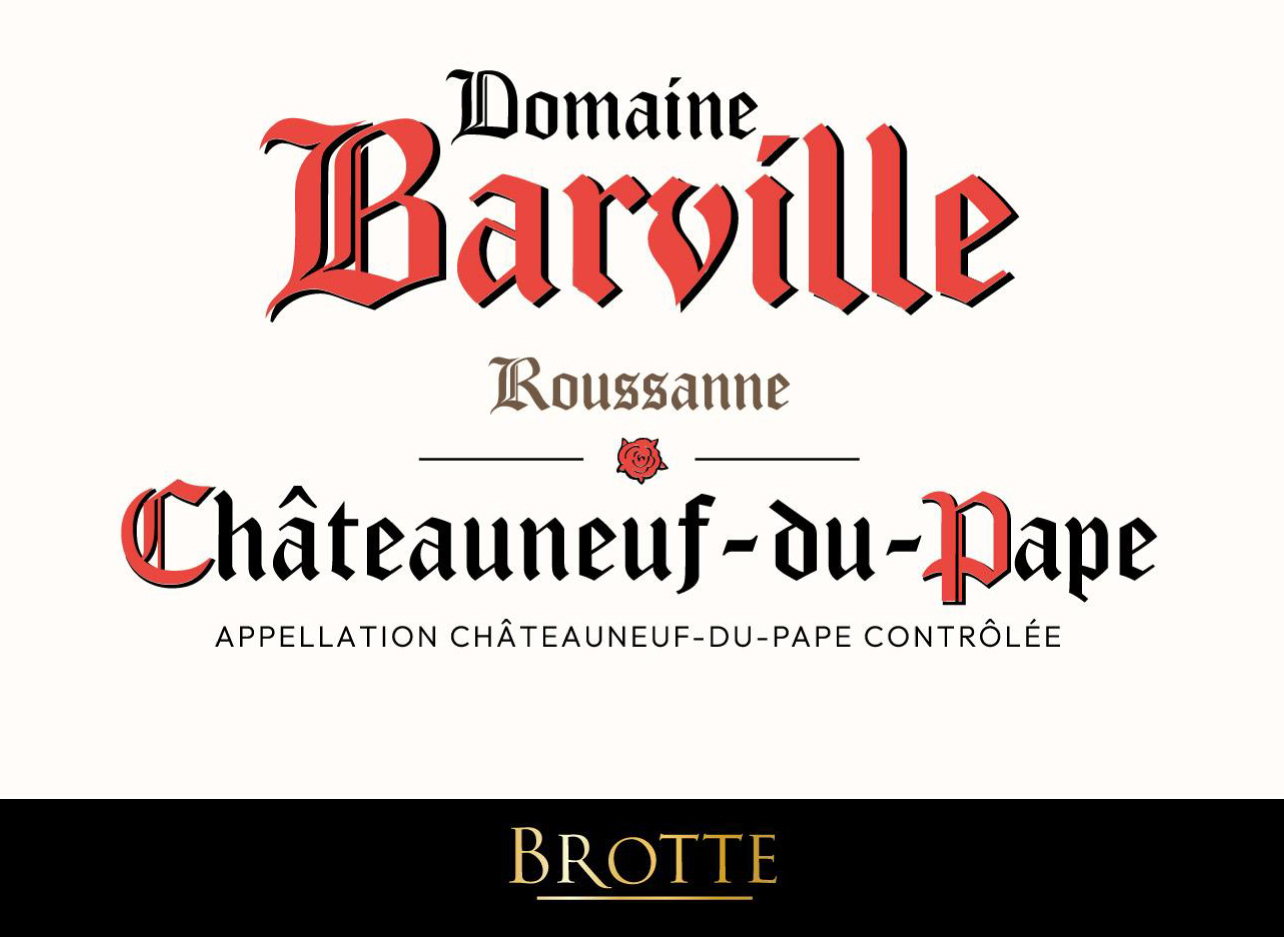
Monsieur Touton Selection, Ltd.
212-255-0674
contact@mtouton.com
www.mtouton.com
Brotte - Domaine Barville Roussanne2023
WHITE WINE
PUBLIC
March 2025
Prices and availability subject to confirmation

- Producer Brotte
- Blend 100% Roussanne
- Country France
- Region Rhone Valley
- Appellation Chateauneuf Du Pape
- UPC 0 15643 49116 0
Reviews
Jeb Dunnuck 91
Ripe stone fruits, apricot, and honeyed white flower notes all emerge from the 2023 Chateauneuf Du Pape Domaine Barville Roussanne (100% Roussanne), a nicely balanced, medium-bodied white that has some spicy background wood, a layered, richer texture, and outstanding length.
by JD, Jeb Dunnuck , 2024
Wine Spectator 93
Stylish and rich, with salty, savory power backing up yellow plum and melon. A jolt of zesty mineral, refreshing green almond and chopped chive notes offsets the warm brushing of toasted brioche. Bitter quinine brings good balance and precision to the warm finish.
by KB, Wine Spectator , 2025
Technical Details
Estate
Domaine Barville is Laurent Brotte’s family estate, in the name of his ancestors, the Barville. The 15ha vineyard is situated on the west side of Châteauneuf-du-Pape and is composed of seven parcels. The vineyards are spread over two of the best areas of the appellation: Clay and pebbles in ‘Pradel’ and shattered limestone in ‘Beaurenard’. The vines have an average age of 35 years and at an elevation of 100m above the Rhône River which, along with the local wind “The Mistral“ creates an exceptionally special microclimate. A very warm climate and the south facing position are ideal for perfect maturation and concentration of the berries.Tasting notes
Color: Bright with golden highlights.Nose: Complex and aromatic with summer stone fruits and dried apricots developing into notes of delicately caramelized buttery hazelnut.
Palate: The front palate is full and rich with intermingling notes of fresh fruits (apple, peach, apricot), vanilla and freshly baked brioche. The finish is elegant and has remarkable length. Excellent ageing potential.